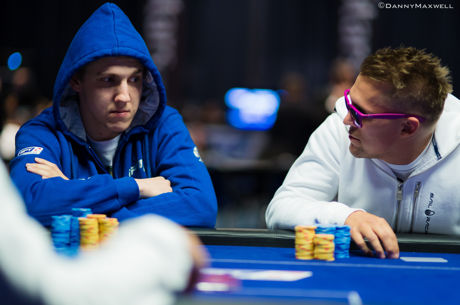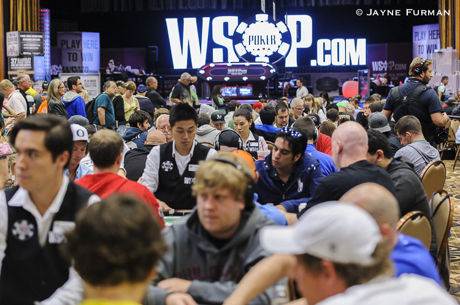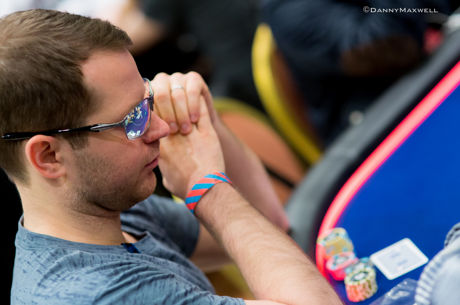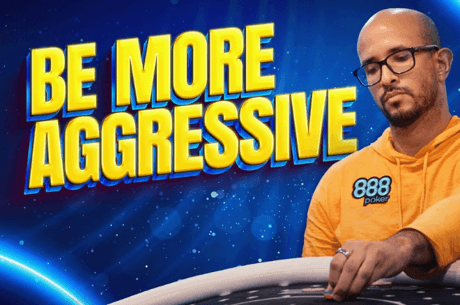Want to Win More and Lose Less? Enter the Matrix
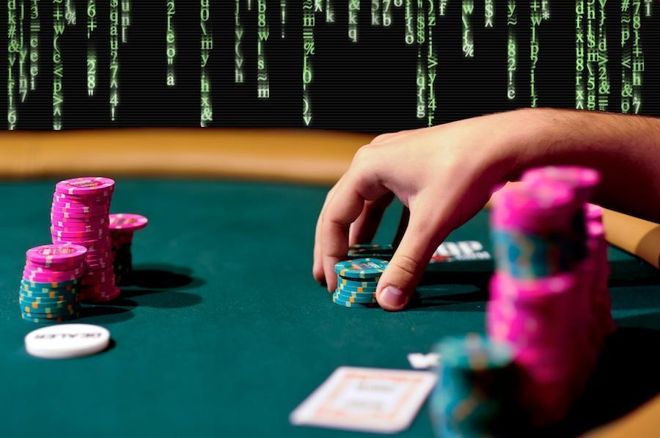
I am a decent poker player. However, for the life of me, I struggle to figure out how to win consistently against the lesser-skilled players I frequently encounter in the small stakes games I play.
I often think to myself, ��I am the best player at this table �� why am I not crushing?�� It��s like there is some unseen force that I do not understand that is designed to keep me from discovering the truth. Let��s just call it... the Matrix.
��Unfortunately, no one can be told what the Matrix is,�� Morpheus once explained. ��You have to see it for yourself.��
Undeterred, I reached out to a wise friend for help. Let��s just call him the Oracle. He told me as a first step I should categorize hands that my opponents can have into one of three strength-based ranges �� Monster, Marginal, and Air.
Using his advice, I developed the following Matrix to help me focus on a goal once I have identified both my range and Villain��s range:

As we can see from the Matrix, once I am in a hand my focus occasionally should be devoted to tilting less, but most of the time it should be spent trying either to win more or to lose less. Let��s break these goals down, starting with the ��Tilt Less�� situation then moving to consider the more common spots when the goal is either to ��Win More�� or to ��Lose Less.��
Tilt Less
Hero��s Monster vs. Villain��s Monster
Tilting less is my primary goal when I run a monster hand into Villain��s monster. More often than not, I am supposed to go broke or double up in these spots. In the past, I did not handle this situation well. When I won, I��d go on happy tilt and felt like I was king of the world. When I lost, I��d go on what mental game author Jared Tendler calls ��injustice tilt�� and ask the Odds Gods why they hate me so.
Tommy Angelo once coined a poker term ��reciprocality�� which means, in a nutshell, that if you play a hand better than your opponent would have played it, you win. Usually in these monster vs. monster situations, the best players in the world would play exactly the same as the worst players in the world. There is no edge to be had. It��s a wash. Understanding this helps me to avoid going on positive or negative tilt.
Win More
If you win more than your opponent would have with the same hand, then you win the battle of reciprocality. I accomplish this by getting maximum value or inducing bluffs when I have something, and inducing folds when I don��t.
Hero��s Monster vs. Villain��s Marginal
In the small stakes games I play, my opponents tend to make a lot of marginal hands and not fold them. This makes it pretty easy to win more with my monsters. I just go for three streets of value for as much as I think they will call.
Hero��s Monster, Marginal, or Air vs. Villain��s Air
When I have something and Villain has nothing, I win more by inducing him to put more money in the pot. Often this can be accomplished by checking or betting very small. Such an approach gives loose-aggressive opponents the green light to bluff with their air. It also gives loose-passive opponents a chance to make a second-best hand on the next street.
Meanwhile when neither of us has anything, I can win more by bluffing Villain off of his air.
Lose Less
If you lose less than your opponent would have with the same hand, then you also win the battle of reciprocality. I accomplish this by folding preflop with the trash hands my loose opponents love to play and by not making fancy bluffs into strength.
Hero��s Marginal or Air vs. Villain��s Monster
When I have a marginal hand and I suspect that Villain has a monster, I try to avoid paying him off. This is pretty easy to do against loose-passive players. They hardly ever bluff, so if they raise you know your bluff catcher is no good. This is particularly true in spots where you are betting a strong marginal hand like top pair, good kicker, and then suddenly get raised by a passive player. He has a monster. Just bet-fold.
Things aren��t so easy when you are up against an aggressive player. His raise could be a bluff. In this situation, bet-folding is not as good, but bet-calling could end up being too expensive. If this is the case, I elect to check-call instead. This prevents me from being bluffed off of a good hand while simultaneously controlling the size of the pot when my hand is not good.
Hero��s Air vs. Villain��s Monster or Marginal
When I have air and I think Villain has a monster or a strong marginal hand, I never try to bluff him. The players in small stakes games are usually incapable of making extreme hero folds. If instead they have one of their weaker marginal hands, I may try and semi-bluff them with my best air hands like flush draws.
Hero��s Marginal vs. Villain��s Marginal
The marginal vs. marginal battle was once the bane of my existence. I saw players making mistakes by playing passively with wide ranges and I was tempted by boredom to widen my own range to get in there and mix it up with them. The result was that the hands I made were just as marginal as theirs. I ended up with higher variance, but no reciprocal edge.
I am learning to remain patient and not widen my range as much against loose players. This causes me to lose less often in marginal vs. marginal spots. In fact, my stronger preflop range makes for stronger marginal hands on average than their looser preflop ranges. This allows me to play my best marginal hands as if they were monsters when I suspect Villain has a weaker marginal hand. That said, I try not to go too crazy with value betting these relative monsters, mostly focusing on pot controlling with my marginal hands and saving the fights to the death for the real beasts in my range.
This match-up has been the toughest for me because it is the most complicated one in poker. This is where the best players differentiate themselves with thin value bets or turning weaker marginal hands into big bluffs. I am prone to making mistakes here, so I tend to play defensively and focus on losing less. If you are better at knowing ��where you��re at,�� you may be able to push your marginal hands a bit further and focus on winning more.
Conclusion
Now that I can see the Matrix, I understand the ugly truth of the matter �� there is no secret that will allow me always to crush my loose opponents in small stakes games. Rather my main goal should be to ��out-fundamental�� them and win the battle of reciprocality.
Now that you too know the reality of the game, you can either go on believing that you should always dominate worse players or you can use what you have learned just to play well and beat them incrementally. Hopefully, that isn��t too tough a pill to swallow.
Want to stay atop all the latest in the poker world? If so, make sure to get PokerNews updates on your social media outlets. Follow us on Twitter and find us on both Facebook and Google+!

